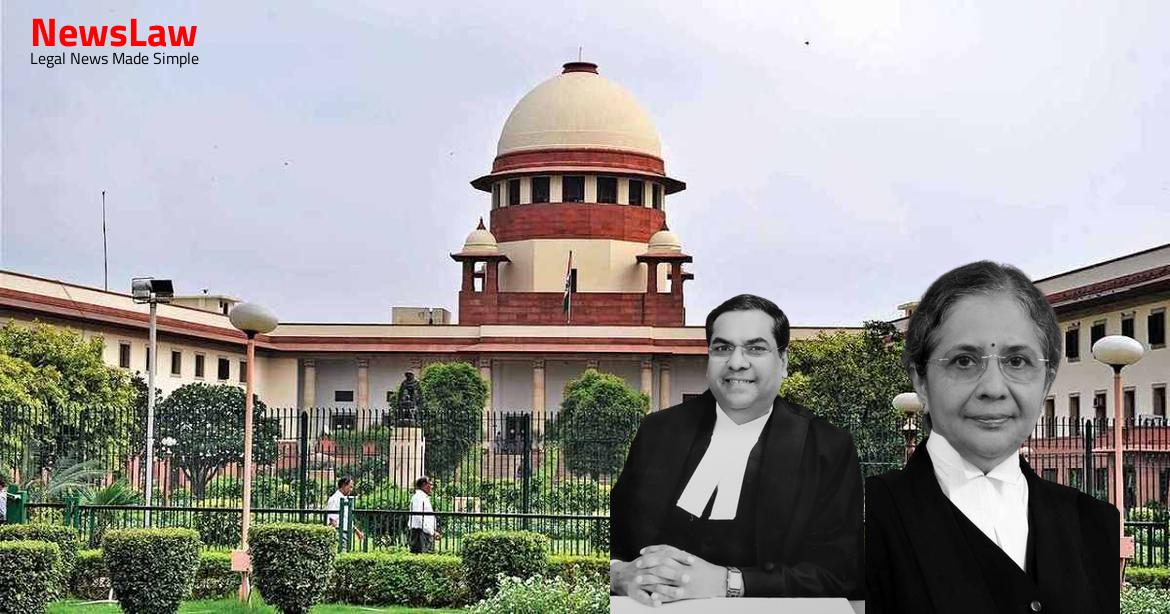In the case of land ownership dispute in Ballyamandoor Village, the High Court examined the intricacies of ‘Bane’ tenure. The disagreement between the parties regarding property rights has raised important legal questions. This blog post delves into the court’s ruling and sheds light on the implications of this case for similar disputes in rural areas.
Facts
- The appellant, defendant no.13, is aggrieved by the dismissal of his Regular First Appeal in the partition suit.
- The appellant claimed to be an absolute owner and in possession of wet lands in Ballyamandoor village seeking a share in the ‘bane’ suit lands.
- It was found that the appellant was not in possession of any private lands in Ballyamandoor village after the evidence was considered by the Civil Judge.
- The appellant admitted to residing in Harihara village and being allotted lands there, raising questions about his ownership claims in Ballyamandoor.
- The concept of ownership of ‘bane’ lands, defined as adjacent to private lands, does not allow for partition.
- The appellant was accused of wrongful occupation of 10 acres of the schedule lands and labeled as a trespasser, thus being liable for eviction.
- The High Court noted that the appellant did not claim ownership based on perfecting title by adverse possession.
- Unlike other defendants, the appellant did not make this claim.
- The appellant’s lack of claim through adverse possession set them apart from other defendants.
Also Read: Land Dispute Resolution: Supreme Court Ruling on Specific Performance
Arguments
- Trial Court erred in appreciating the appellant’s evidence and misconstrued it leading to a wrong admission
- Appellant’s evidence indicated he did hold wet lands in Ballyamandoor village, contrary to Trial Court’s understanding
- The appellant relied on Nandinaravanda Medappa vs Nandinaravanda Ganapathy for the understanding of ‘bane’ tenure
- High Court upheld Trial Court’s finding that the appellant failed to prove possession of wet lands
- Appellant further argued that ‘bane’ lands cannot be partitioned, making the suit non-maintainable
- The suit was deemed maintainable under Section 79(2) of the Karnataka Land Revenue Act, 1964.
- The ruling in Machettira Machaiah and Others vs. Machettira Kariappa and Another, AIR 1994 Karnataka 52, was cited to support the maintainability of the suit.
- The decision in Nandinaravanda (supra) was overruled by the full bench of the Karnataka High Court.
- The Civil Judge did not accept the appellant’s claim of possession of wet lands in survey nos. 180, 183, 179(1), 179(2) in Ballyamandoor village.
- Defendant nos. 1 to 6 were deemed to be in possession of survey no. 180, defendant No. 7 had possession of survey nos. 179(1), 179(2), and survey no. 183 was under the possession of defendant nos. 5 to 7.
- As the appellant could not establish possession of any wet lands in Ballyamandoor village, they were rightfully held to be not entitled to any share in the ‘bane’ suit lands.
Analysis
- The appellant claimed possession of wet lands in Ballyamandoor village but did not know the survey numbers.
- The appellant’s statements were specific and clear without ambiguity according to the court.
- Both courts found that the appellant had been allotted lands in Harihara village after a family partition.
- The appellant failed to provide any evidence of possession of wet lands in Ballyamandoor village.
- The appeal was dismissed for lacking merit based on the above analysis.
Also Read: Judicial Standards and Compulsory Retirement Case: Supreme Court of India Judgment
Case Title: KOTTANGADA B.MOTAIAH Vs. MACHIMADA BELLIAPPA
Case Number: C.A. No.-005134-005134 / 2013



